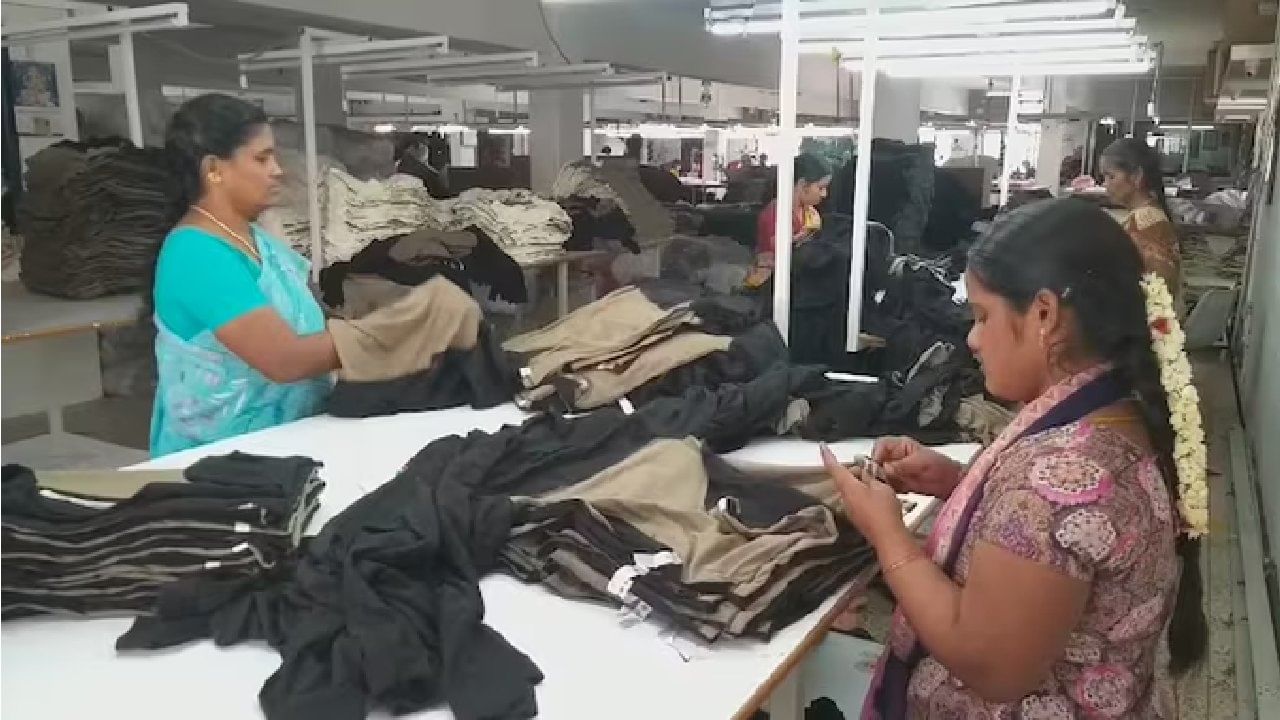Tiruppur: Tiruppur, the bustling knitwear capital of India, is reeling under the impact of a sudden 50% tariff imposed by the United States on imported Indian goods, a move that has triggered a severe financial crisis and threatens exports worth thousands of crores. With order books thinning and warehouses filling with unsold stock, manufacturers in this industrial hub are struggling to meet salary obligations and are urgently appealing to the Central Government for intervention.
The tariff, announced by the Trump administration and effective from August 27, is widely perceived as a punitive response to India’s continued purchase of Russian crude oil. By dramatically increasing the cost of Indian goods in the U.S. market, the policy has rendered Tirupur’s exports uncompetitive overnight, leading to cancelled orders and an uncertain future for one of India’s key export industries.
Production Grinds to a Halt as Orders Dry Up
The immediate consequence of the tariff has been a sharp and painful contraction in business activity. Tirupur, which normally sustains an annual export business of approximately ₹45,000 crore, has seen ₹12,000 crore worth of trade directly disrupted. The U.S. market, which accounts for 30-35% of the region’s knitwear exports, has effectively closed off, causing a domino effect through the local economy.
Factories that were once operating at full capacity have significantly scaled down production. Many have been forced to send their temporary workers on indefinite leave. The owner of a company specializing in underwear exports described stacks of unsold inventory and a complete halt in production over the past month. “We hope that India will sign an agreement with the U.S. soon,” he said, voicing a common anxiety. “The entire production chain has come to a standstill. If this continues, how will we be able to pay the employees?”
Industry Demands Urgent Measures to Restore Competitiveness
Faced with an existential threat, manufacturers and industry bodies are demanding immediate action from the government. Their demands focus on both short-term relief and long-term strategic shifts. Primarily, they are calling for a reduction in import duties on raw materials to help lower production costs and partially offset the price disadvantage in the U.S. market.
The severity of the price disadvantage is clear. A simple t-shirt that once sold for $10 in the U.S. will now cost the American consumer $16.40. This new price point makes Indian goods far more expensive than those from key competitors like China ($14.20), Bangladesh ($13.20), and Vietnam ($12.00). Faced with these numbers, American retail companies have swiftly cancelled orders. Beyond short-term fixes, the industry is also urging the government to accelerate negotiations with other countries to open new markets and diversify export dependencies, reducing the sector’s vulnerability to such unilateral trade actions.
